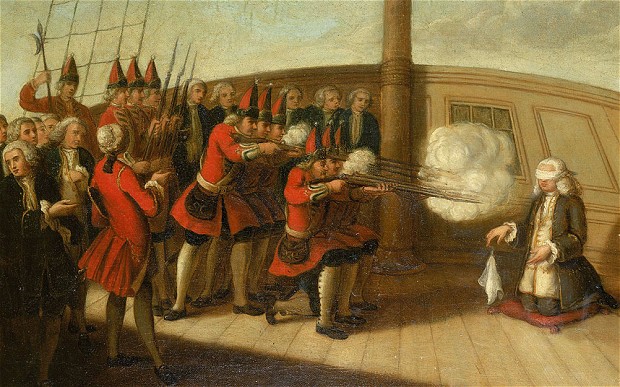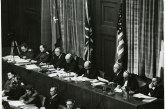
Story Highlights
- Historical event:
- 14. March 1757
- The decision to execute the admiral was highly controversial, since Byng's responsibility for the defeat was disputable. Even the British Prime Minister advised King George III to spare the admiral.
On this day in 1757 British admiral Sir John Byng was executed by firing squad. The case became very well-known in history because the admiral was executed on the deck of a ship, in full view of a large number of crewmen.
The execution was preformed after the military tribunal declared the admiral guilty of losing the island of Minorca in the Mediterranean.
Namely, the military tribunal decided that Admiral Byng had failed to do everything in his power to prevent the fall of Minorca in the Seven Years’ War. The British had possessed Minorca since 1708, and lost it in 1756, during the aforementioned war, in which Admiral Byng served as the commander of a squadron of ships.
The decision to execute the admiral was highly controversial, since Byng’s responsibility for the defeat was disputable. Even the British Prime Minister advised King George III to spare the admiral, but the king refused to do this.
The admiral was executed on this day on the HMS monarch, by a firing squad consisting of British Royal Marines. When he was about to be executed, the admiral was blindfolded and knelt on a pillow, and allegedly gave the marines the signal to fire by dropping his handkerchief.




